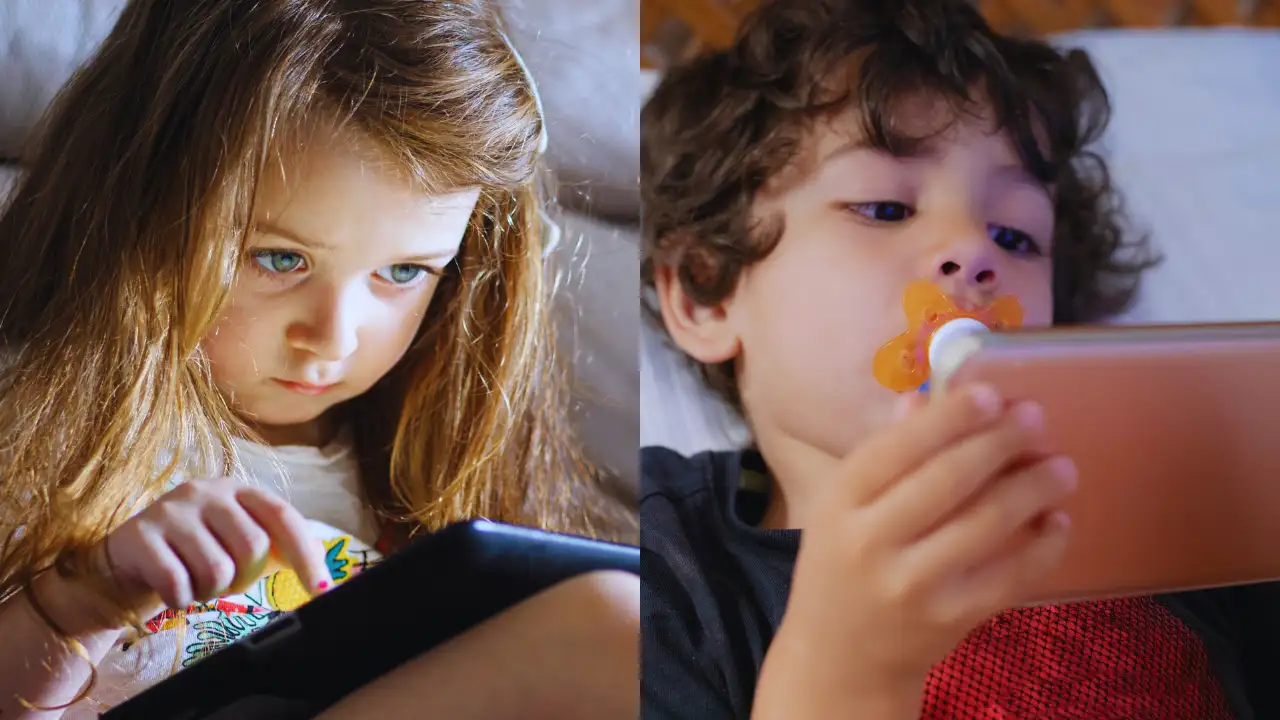A simple test can reveal just how deeply screens may be affecting your child. It is a basic check of how a toddler’s body responds when gently held upside down by their feet. In a healthy response, most toddlers will laugh, relax, or show signs of playfulness. It is a natural vestibular response, part of how their brain processes movement and balance. But a growing number are reacting in the opposite way, with fear, tension, and even panic.
Dr. Madhumitha Ezhil, known on Instagram as screenfreeparent, points to this as a worrying red flag.
According to researchers, toddlers who show signs of early screen addiction often freeze, tremble, or desperately try to grab onto something when their body is flipped. This reaction is not random; it is a symptom of what she calls a screen-induced vestibular pathological reflex, and it reveals how excessive screen exposure may be interfering with the development of the child’s brain and sensory systems.
Essentially, excessive screen time is rewiring the child’s brain to rely almost entirely on visual input, at the cost of other critical systems like balance and spatial awareness. In simpler terms, screens are overtraining their eyes and undertraining everything else.
The Follow-Up Test
Dr. Madhumitha explains that in 99 percent of toddlers showing signs of early screen addiction, this reflex shows up. And the issue does not stop there. In a follow-up test, when their eyes were covered gently with a hand, just like a playful game of peekaboo, 95 percent of these children panicked again. The brain, it turns out, had no backup plan when the eyes were “turned off”.
Why? Because screens, especially when used excessively and early in life, create a false environment where only visual input matters. The child stops using their body and senses to explore the world; everything they need comes in pixels and soundbites. The brain, ever adaptable, starts to prioritise this way of functioning. The vestibular system, which governs balance, movement, and spatial orientation, is left underused and underdeveloped.
But there is a solution to this rather alarming trend. Dr. Madhumitha says that these symptoms can completely disappear after a proper screen detox. Yes, completely. Once screens are taken away and children reengage with the physical world, crawling, tumbling, jumping, spinning, their bodies recalibrate. The reflex vanishes. But once screens are reintroduced, she says, the symptoms often return.
It is a serious reminder that screens are not just affecting behaviour or sleep; they are altering the very way young brains are wired to interact with the world.
So if you are now checking your toddler’s daily YouTube minutes, you are not alone.
